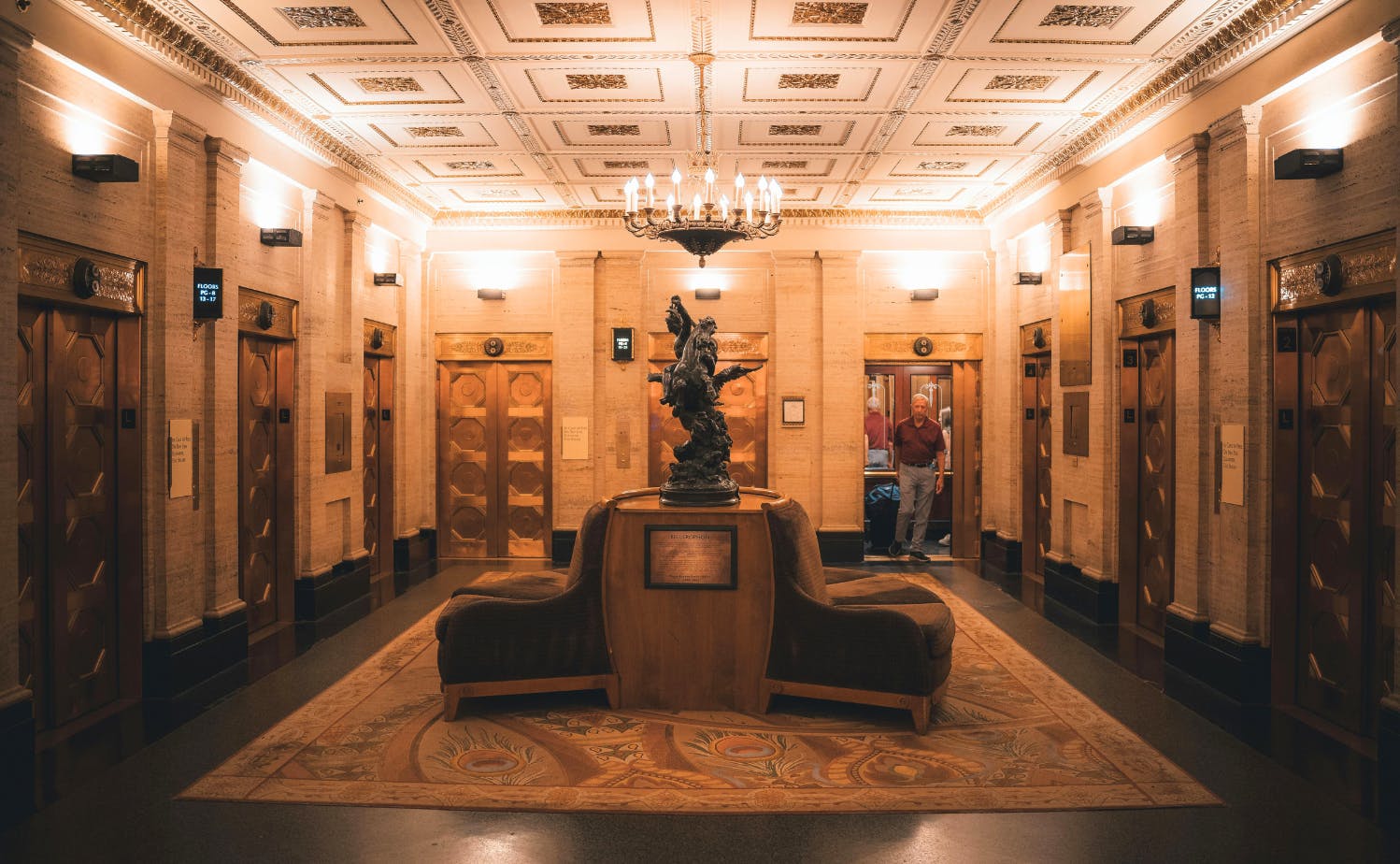
Hotel Reservation Software: Functions & Features Guide

Embracing technology has become a pivotal strategy for success in the ever-evolving hospitality industry. Hotel reservation software is one of the most impactful tools available to hotel managers, offering a streamlined way to handle bookings, improve efficiency, and enhance the guest experience. Whether you're operating a cozy boutique hotel or a large-scale resort, the right software solution can transform your operations, making them more seamless and profitable.
Embracing technology has become a pivotal strategy for success in the ever-evolving hospitality industry. Hotel reservation software is one of the most impactful tools available to hotel managers, offering a streamlined way to handle bookings, improve efficiency, and enhance the guest experience. Whether you're operating a cozy boutique hotel or a large-scale resort, the right software solution can transform your operations, making them more seamless and profitable.
In this guide, we’ll dive into the essential functions and features of hotel reservation software, exploring how it can help you optimize your processes and stay ahead in a competitive, tech-driven market.
What is Hotel Reservation Software?
Hotel reservation software is a specialized platform designed to manage and automate the booking process for hotels, resorts, and other hospitality establishments. It enables hotels to efficiently handle reservations, track availability, process payments, manage guest data, and more.
Hotel reservation systems (often called Property Management Systems or PMS) provide a centralized platform to ensure seamless communication between the front desk, housekeeping, sales teams, and marketing departments. With the increasing reliance on online booking channels and mobile technology, hotel reservation software has become a critical component for success in the modern hospitality industry.
Key Functions of Hotel Reservation Software
1. Booking Management
One of the primary functions of hotel reservation software is booking management. The system allows hotel staff to:
- Track Availability: Automatically update room availability in real time to avoid overbookings and ensure guests can only book available rooms.
- Manage Reservations: Handle both direct bookings (through the hotel’s website) and bookings made through third-party platforms such as OTAs (Online Travel Agents), GDS (Global Distribution Systems), and travel agencies.
- Reservation Modifications: Easily modify existing bookings, such as changing dates, adjusting room types, or adding special requests.
- Confirmation & Notifications: Send automatic email or SMS confirmations and reminders to guests about their booking details, reducing no-shows.
2. Channel Management
A hotel typically operates across several booking channels, such as OTAs like Booking.com, Expedia, or Airbnb. Managing these channels manually can be time-consuming and error-prone. Hotel reservation software often includes integrated channel management features that:
- Sync Room Availability: Automatically update room availability across multiple platforms in real time to prevent double bookings.
- Manage Rates: Adjust pricing across different booking channels from one central dashboard.
- Track Channel Performance: Analyze the performance of various channels to optimize marketing strategies and adjust pricing based on demand.
3. Payment Processing
Efficient and secure payment processing is essential for both guest satisfaction and operational efficiency. A comprehensive hotel reservation system integrates with various payment gateways to:
- Accept Payments Online: Process credit/debit card payments for direct bookings on your website.
- Secure Payment Processing: Ensure compliance with PCI-DSS standards for secure payment transactions.
- Handle Deposits & Prepayments: Collect deposits or prepayments to secure reservations, reducing the risk of cancellations or no-shows.
- Refund Management: Facilitate easy cancellations and refunds, improving guest satisfaction and maintaining trust.
4. Guest Profile Management
Hotel reservation software allows you to collect, store, and manage guest information in a centralized system. This data can be invaluable for offering personalized services and improving guest loyalty. Key functions in guest profile management include:
- Storing Personal Information: Safely store guest names, contact details, booking history, and preferences for future reference.
- Special Requests: Track special requests made by guests (e.g., room preferences, dietary restrictions) to provide a more personalized experience.
- Loyalty Programs: Integrate loyalty programs into the system to reward repeat guests and increase customer retention.
5. Reporting & Analytics
Data-driven decision-making is crucial for the success of any hotel. Hotel reservation software typically includes reporting and analytics tools that help hotel managers:
- Track Occupancy Rates: Monitor room occupancy and identify trends to optimize pricing and availability.
- Revenue Management: Generate reports on revenue per available room (RevPAR), average daily rate (ADR), and total revenue to evaluate financial performance.
- Guest Demographics: Analyze guest demographics to better understand your target audience and tailor marketing efforts.
- Forecast Demand: Predict peak seasons and demand fluctuations to adjust pricing strategies in advance.
6. Booking Engine
A robust booking engine is a must-have feature for modern hotels. It’s the online tool that guests use to check availability, select rooms, and make reservations directly from your website. A good booking engine:
- Mobile-Friendly: Ensures that your website’s booking interface is easy to navigate on smartphones and tablets, allowing guests to book rooms anytime, anywhere.
- Multi-Language & Currency Support: Attract international guests by providing support for multiple languages and currencies.
- Customizable Design: Aligns with your hotel’s branding, design preferences, and visual aesthetics to create a seamless, engaging, and professional user experience.
- Upselling Capabilities: Allows you to offer additional services, such as room upgrades, special packages, or tours, to increase the overall booking value.

Additional Features to Look for in Hotel Reservation Software
While the key functions mentioned above are essential, there are other features that can significantly enhance the effectiveness of hotel reservation software.
1. Multi-Property Management
For hotel chains or groups with multiple properties, a multi-property management feature allows operators to oversee all their locations from one central dashboard. This includes managing:
- Room Availability: Monitor availability across various properties and centralize bookings.
- Pricing & Promotions: Set consistent pricing rules and promotions across all properties or create property-specific rates.
- Cross-property Reservations: Allow guests to book rooms at different properties within the same chain.
2. Integration with Third-Party Systems
A robust hotel reservation system can integrate with other third-party tools to enhance its functionality. Common integrations include:
- Housekeeping Management: Automatically assign rooms to housekeeping staff and track room status (e.g., clean, dirty, under maintenance).
- CRM Systems: Integrate with customer relationship management tools to improve guest communication and loyalty initiatives.
- Accounting Software: Streamline accounting processes by syncing financial data with accounting software.
3. Mobile Access
With hotel management increasingly moving toward mobile solutions, many reservation systems offer mobile apps or mobile-friendly dashboards that allow managers and staff to:
- Manage Bookings on the Go: Access reservation information, check availability, and modify bookings from anywhere.
- Guest Communication: Send check-in details, room service requests, and updates directly to guests’ smartphones.
4. Automated Check-In and Check-Out
A growing trend in the hospitality industry is the automation of guest check-in and check-out processes. This feature can:
- Reduce Wait Times: Allow guests to check in or out via self-service kiosks or their mobile devices, streamlining operations and improving guest satisfaction.
- Contactless Experience: Provide a contactless experience, which has become increasingly important in the post-pandemic world.
5. Cloud-Based Solution
Cloud-based hotel reservation systems offer a number of benefits over traditional on-premise software, including:
- Remote Access: Managers can access the system from anywhere with an internet connection, making it ideal for hotel owners with multiple locations or those who frequently travel.
- Scalability: Cloud solutions can easily scale as your business grows, adding new properties or features as needed.
- Automatic Updates: Enjoy automatic software updates, ensuring that your system is always up to date with the latest features and security patches.
70% of hotel operators have reported adopting cloud-based reservation software.
Key Benefits of Hotel Reservation Software
- Increased Efficiency: Automating tasks like booking management, payment processing, and guest communication frees up staff time for more valuable activities.
- Enhanced Guest Experience: By providing personalized services, seamless booking experiences, and quicker check-ins/outs, hotel reservation software helps increase guest satisfaction and loyalty.
- Revenue Optimization: Features like dynamic pricing, channel management, and real-time availability allow hotels to maximize their revenue potential.
- Data Insights: The ability to collect and analyze data helps hotels make informed decisions and identify opportunities for growth.
Boosting Hotel Reservation Software
Hotel reservation software is a game-changer for boosting efficiency, enhancing guest satisfaction, and driving revenue. By carefully assessing its features, integrations, and scalability, you can find the perfect system to match your business needs. Whether you're managing a B&B or a large hotel chain, the right software will help you stay ahead of the competition and deliver an unforgettable guest experience.
By optimizing visuals across digital platforms, OCUS can significantly enhance your hotel reservation software. Here's how:
- High-Quality Imagery: Access professional photographers worldwide for captivating property photos that boost user engagement.
- AI-Powered Image Optimization: Automatically enhance and optimize images for improved visual appeal and faster loading times.
- Image Moderation: Ensure brand consistency with automatic content moderation, protecting your brand and saving time.
- Performance Tracking: Measure the impact of visuals with real-time performance scores to drive conversions and increase bookings.
By integrating OCUS, hotels can further elevate their online presence, optimize visual content, and enhance the overall guest experience, leading to more bookings and greater revenue.